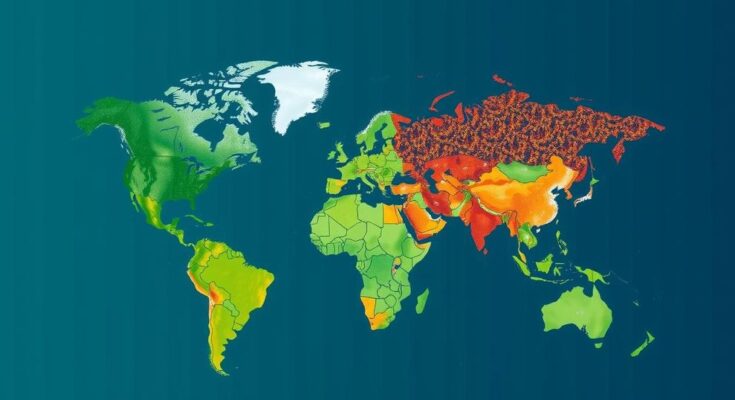Research by Lawrence Hamilton indicates that despite severe climate-related disasters, voter awareness and concern over climate change have stagnated due to misinformation and the intertwining of voting behaviors with personal identity, particularly among older voters. Younger generations appear more open to addressing climate issues, suggesting potential shifts in electoral impacts in the future.
Lawrence Hamilton, a researcher at the University of New Hampshire specializing in public perceptions of climate change, has observed a stagnation in climate change awareness in the United States, particularly after the COVID-19 pandemic. According to Hamilton, the proliferation of misinformation has hindered the impact of extreme weather events, driven by climate change, on electoral outcomes. Notable recent instances include hurricanes Helene and Milton, as well as the Davis Fire in northern Nevada, which, despite their severity, have not significantly influenced voter sentiments. Furthermore, Hamilton argues that voting behavior has become intricately linked to personal identity. Individuals often associate their political positions, such as the denial of scientific consensus on climate change, with their core identity, making it exceedingly challenging to change such views. He notes that this phenomenon is particularly pronounced among individuals aged 30 and older. In contrast, survey evidence suggests that younger individuals exhibit a greater willingness to reconsider their beliefs, with many attributing climate change to human activity and expressing concern about escalating climate-related disasters. Consequently, there is potential for increased electoral influence of climate change on future elections in the Mountain West region.
The discussion surrounding climate change and its implications on voter behavior highlights a significant disconnect in public awareness and the psychological factors influencing political alignments. Researchers have noted a decline in climate change recognition, attributed to the proliferation of misinformation during recent crises. Understanding how these factors shape public opinion is crucial, particularly in the context of extreme weather events that could directly affect voter perspectives and electoral outcomes, creating a broader dialogue on climate responsibility.
In summary, despite the growing severity of climate-related disasters, their influence on voting is currently minimal, largely due to entrenched identity politics and the rise of misinformation. Future electoral outcomes may be affected as younger voters, who are more concerned about climate change, increasingly participate in the political landscape. This evolving dynamic suggests that climate change could eventually play a more pivotal role in shaping voter priorities, particularly in areas vulnerable to the effects of global warming.
Original Source: www.kanw.com




